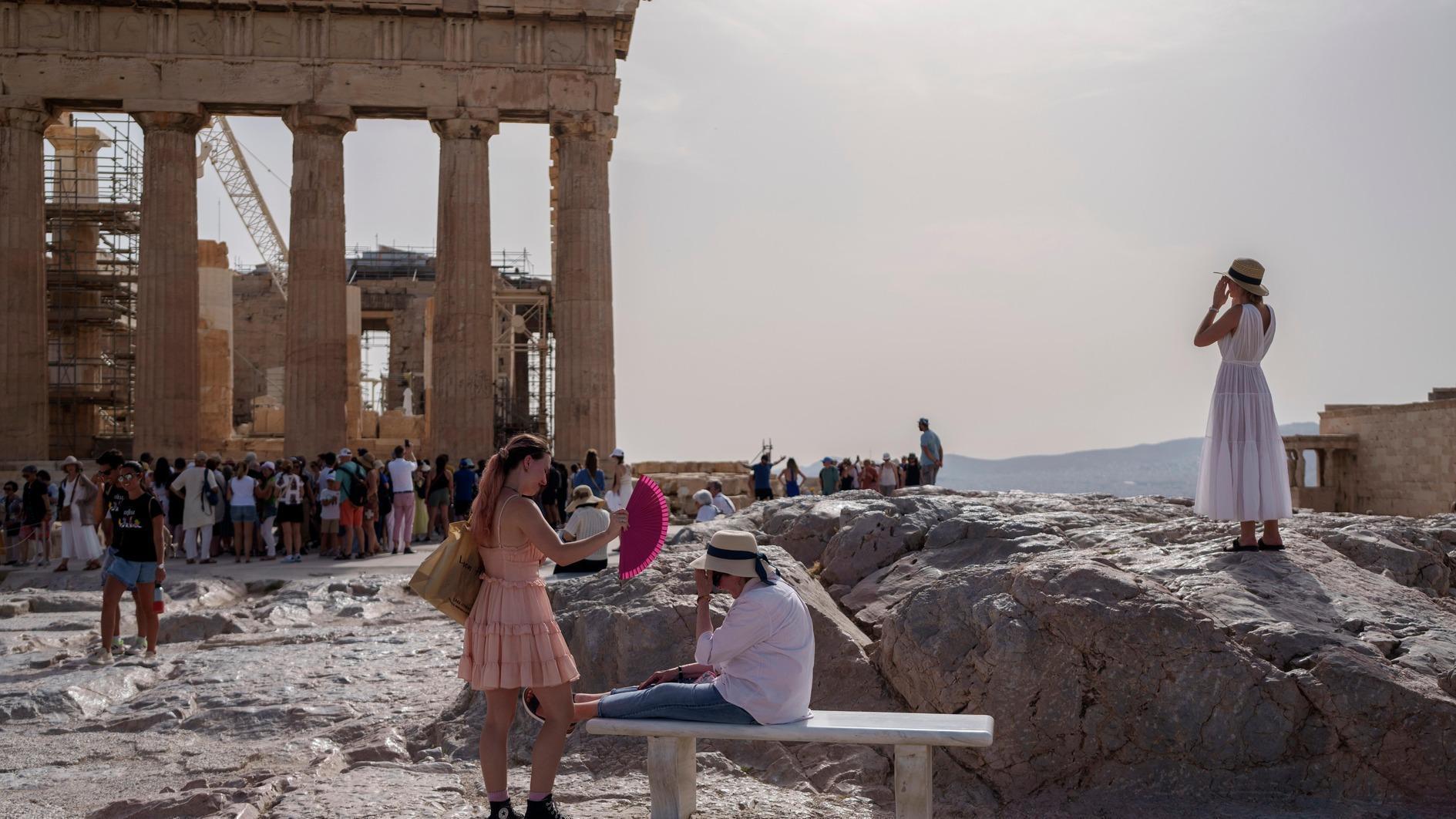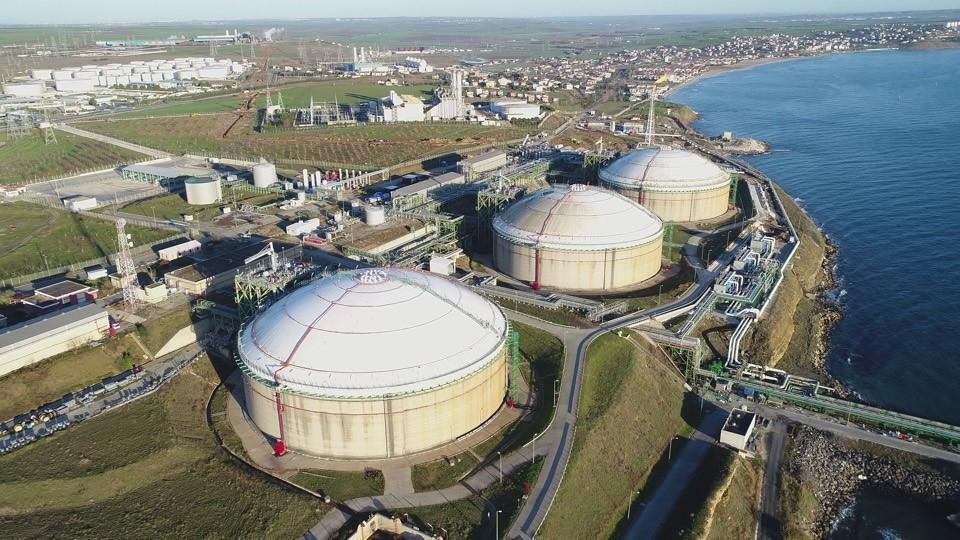Heat forces second day closure of Acropolis in Greece
ATHENS

Authorities in Greece closed down the Acropolis in Athens, Greece's most visited tourist site, during the afternoon on June 13 for a second day as the country swelters under unseasonably high temperatures.
The UNESCO-listed archaeological site closed from midday to 5:00 p.m. local time, with temperatures topping 43 degrees Celsius in central Greece.
All other archaeological sites in the Greek capital were also shut during the same hours. People who had booked visits for that period could use their tickets later in the day until the sites close at 8 p.m., the Greek culture ministry said.
Meteorologists have noted this is the earliest heatwave, which for Greece is temperatures exceeding 38 degrees Celsius for at least three days, on record.
"This heatwave will go down in history," meteorologist Panos Giannopoulos said on state TV ERT.
"In the 20th century we never had a heatwave before June 19. We have had several in the 21st century, but none before June 15," he said.
The climate crisis and civil protection ministry has warned of a very high risk of fires in the Attica region around Athens.
Schools stayed closed in several regions of the country on June 12 and 13, including in the capital, while the labour ministry has advised public-sector employees to work from home.
The ministry also ordered a pause from midday to 5:00 pm for outdoor work including food delivery.
Still, many employees are obliged to take their own precautions.
Tassos Konstantinidis, a 25-year-old selling mobile phone cards for a major telecoms company, wore a cap and brought along an icebox for his water.
"I lived this last year when we had almost 10 days of heatwave," he said.
"It's up to me to organise myself and take breaks if needed," he told AFP. "My employer has made no such provisions."
Sheltering under a parasol, electrician Fotis Pappous said he had started his workday a few hours earlier than usual, at 6:00 am, on orders from his employer.
"With this kind of heat, it would be too risky otherwise," said the 46-year-old as he tinkered with an electricity meter near Athens's central Syntagma Square.
But for staff working over the grill in Greece's already-buzzing tourist Monastiraki district, there was no room for respite.
"We have no choice, it's the start of the tourist season," said kebab store owner Elisavet Robou.
"We have air-conditioning and fans, and staff are allowed to take breaks, but unfortunately the climate crisis is here.
"Heatwaves came earlier this year and the season will be difficult," she said.
An air-conditioned hall has been opened at Syntagma metro station in central Athens to give people somewhere to shelter from the heat, the public transport authority said.
Greece's Red Cross said it had handed out some 12,000 bottles of water in the centre of the capital and at the Acropolis.
In Greece's second city Thessaloniki, teachers and pupils said annual school exams were held under difficult conditions.
"There was no air-conditioning in any of the rooms so we used fans, some of which the teachers brought from their own homes," said Andreas Karagiannis, a 52-year-old mathematician and examiner.
"Exams should not have been held under these conditions," said 17-year-old pupil Yiannis Theodoridis.
The Acropolis was forced to close in July last year during a two-week heatwave that was unprecedented in its duration.
It was followed by fires that according to the National Observatory of Athens consumed nearly 175,000 hectares of forest and farmland.
The minister responsible for civil protection, Vassilis Kikilias, said June 13 posed a particular wildfire risk due to the combination of high temperatures and winds.
“The early start of the heat waves, combined with the dry winter, has led to a very difficult fire season,” he said.
The fire service also warned of a very high wildfire threat on June 14.
Temperatures are expected to drop on June 14 and 15.
A record number of almost four million visitors flocked to the Acropolis last year, with its popularity boosted in part due to tourists arriving on cruise ships calling in at the nearby port of Piraeus.
















